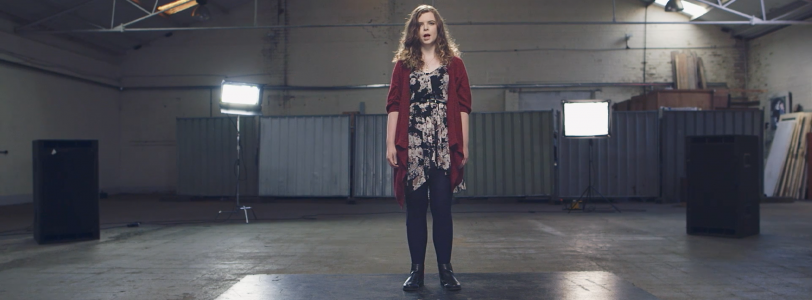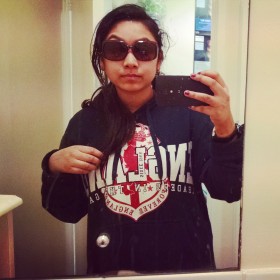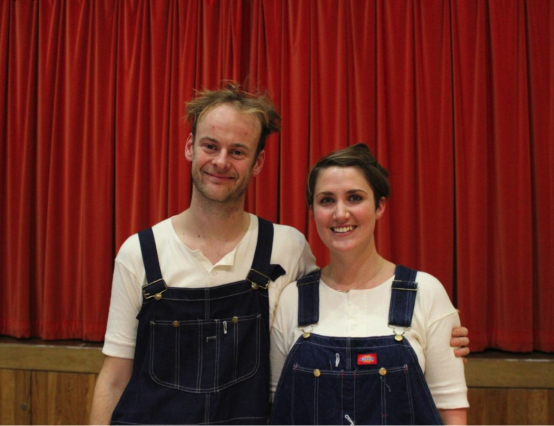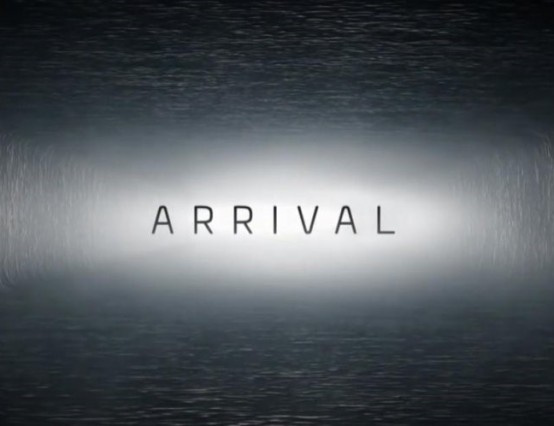The film emphasizes the various methods of media-based communication in the 21st century, but hints towards a social change video-campaign. It inspires us to gain perspective on how our fixation online is having a tortuous and mind-numbing effect on our own belief systems in society. Chimiak portrays this idea successfully through the lens in an effective manner, where at both the start and end of the film, we see a man sitting "couch-potato" style on his tablet, listening obliviously to his music.
Opening with a dimly-lit setting, the scene can be compared to that of a run-down factory or a dilapidated workhouse left to rot; the only props being modern items of technology which seem out of place in the room. The lights focus on a girl standing on a raised platform, and there is a sudden start of background music building enigma and suspense. The girl 'lights' up the dark room with her words as she describes how we forge new routes through social separation.
"We manage to forge new routes through our social separation."
Experimental music during the film conceptualises and grows the idea of pejorative transitioning, during an era where all we see are blue-lit screens everywhere around us. It significantly highlights an atmospheric yet neutral background of hope, the often discordant pattern resembling change and metamorphosis with chords and triads of notes. Coupled with carefully-crafted words of juxtaposing metaphors; "gardens of which we can perfect, edit, and delete sentiments" the music allows the performance of words (all of the botanical semantics) to accurately describe how we appear to live around screens.
The short film exhibits excellent artistic interpretation of human behaviour, reflecting a concrete-jungle world in which we are attached to their phones, and what I see as subtle activism too - against the digital downfall of a human-robot-society.
"It's as if the digital world is too much of a submersion from where we've been keeping sunlight in our screens…"









Really great clip! It amazes me how quickly the way we've communicated has changed over the past few years.